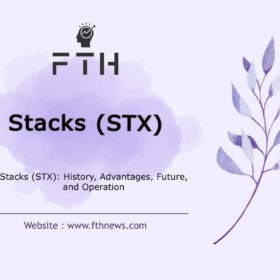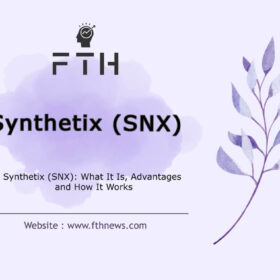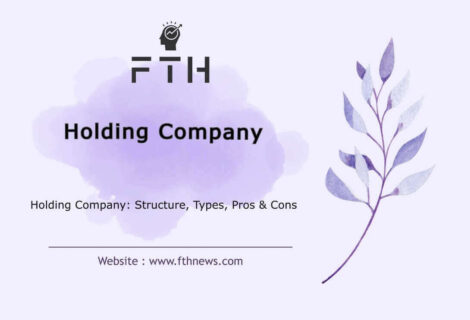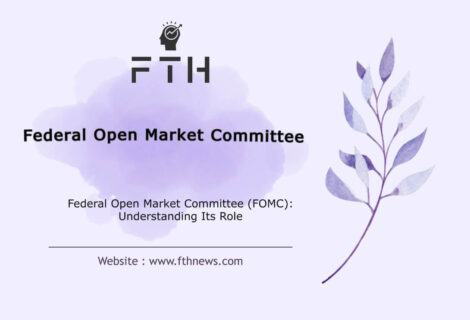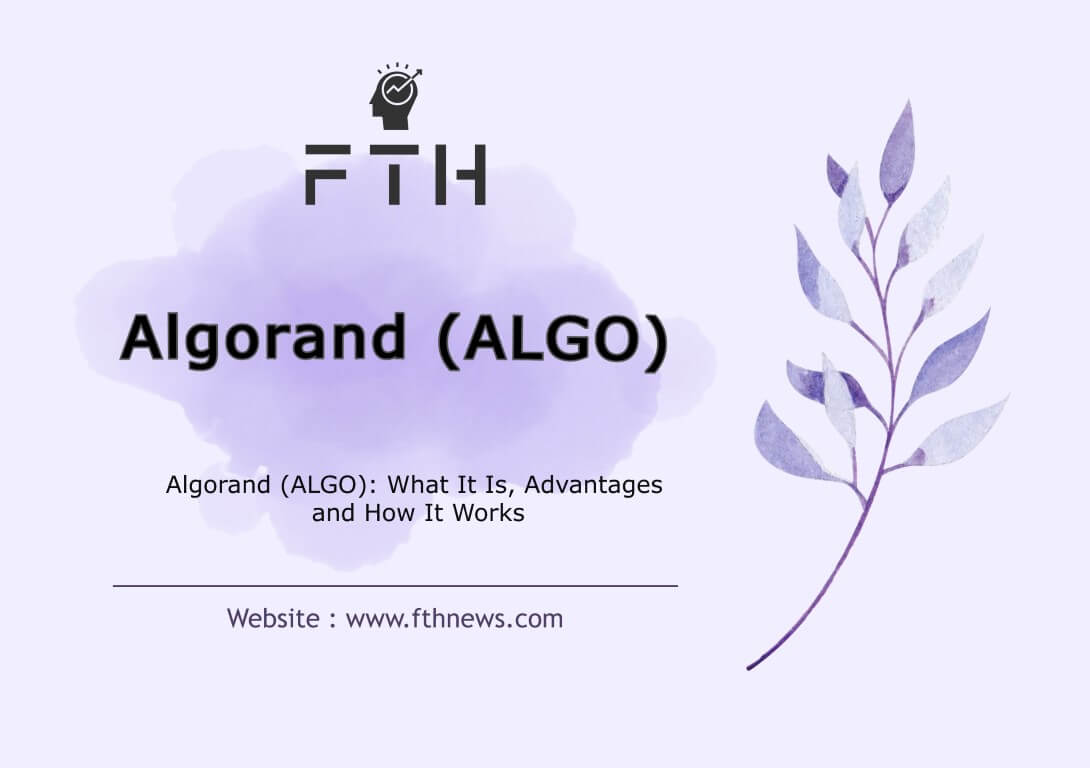
Algorand (ALGO): What It Is, Advantages and How It Works
Algorand (ALGO) is an independent, decentralized, and blockchain-based currency network that provides support for a diverse array of applications. Regarded as a secure, scalable, and efficient network within the digital currency market, Algorand has been positioned as the third generation of blockchain technology since its inception in 2019.
Operating on a proof-of-stake algorithm, the Algorand blockchain network has been introduced to the digital currency market with a focus on scalability and high transaction speed. The primary objectives of Algorand include establishing a swift financial system with robust security features. The developers are aiming to mold the currency system to function similarly to established payment systems like Visa and MasterCard, envisioning a positive impact on the future of Algorand digital currency if this goal is achieved.
The surge in Gas fees on the Ethereum network has prompted decentralized application developers and DeFi traders to explore alternative blockchain solutions such as Algorand. Transactions on the Algorand platform are completed in less than 4 seconds, offering a stark contrast to Ethereum’s high gas fees. ALGO transactions are not only speedy but also cost-effective.
This burgeoning blockchain network places a strong emphasis on network scalability without compromising decentralization—a challenge faced by many first and second-generation blockchains like Bitcoin and Ethereum.
Understanding Algorand (ALGO)
Launched in June 2019 by computer scientist and MIT University professor Silvio Micali, Algorand is a decentralized network designed to address the triple challenges of blockchain—speed, security, and centralization. An open-source blockchain with no permission requirements, Algorand welcomes anyone to build and develop on its platform. The network’s primary focus is on facilitating high-speed and instant transactions for payments. With over 1000 transactions processed every second, Algorand ensures transactions are finalized in less than 4 seconds.
Algorand operates as a decentralized and independent blockchain-based network, supporting a wide range of software applications. It possesses essential real-world application features, including security and scalability.
The two-layer blockchain structure of the Algorand network is noteworthy. The first layer facilitates simple smart contracts, asset creation, Atomic Swap, and ensures security and compatibility. The second layer is dedicated to complex smart contracts and decentralized software development (dApp).
This dual-layer structure enhances transaction processing efficiency. By segregating complex smart contracts into the second layer outside the main chain, simpler transactions in the first layer can be processed more rapidly.
Algorand’s consensus mechanism, known as Pure Proof of Stake (PpoS), is distinctive. A type of Proof of Stake algorithm, PpoS requires a minimum level of staking and participation for securing the network, specifically a template token. This design promotes greater democratic participation within the Algorand network.
How the Algorand (ALGO) Network Operates
The Algorand cryptocurrency blockchain employs a decentralized Byzantine agreement protocol to enhance transaction throughput and finalization time, utilizing the Pure Proof of Stake (PPOS) model. The consensus algorithm in the Algorand digital currency network comprises five crucial steps:
1. Proposal
At this stage, a selection of blocks is proposed for new blocks in the network. Each network node, managing its own accounts, employs Algorand’s Verifiable Random Function (VRF). VRF functions as a weighted system, using the number of model currencies in the relevant active account for selection.
2. Soft Vote
All proposals undergo filtering to establish a single plan for creating a block. Nodes receive various messages from other nodes, and each node verifies the VRF proof of these messages.
3. Certify Vote
A proposed committee examines the block from the soft voting stage to prevent issues like double spending. If no such problems arise, the new committee votes again to approve the block.
4. Verifiable Random Operation (VRF)
After the previous three steps, a random and unpredictable selection seed determines the user who will achieve consensus in the next protocol round. Users can check whether they’re selected using the VRF related to their participation private key and selection seed.
Verifiable random operations produce a pseudo-random output, along with a cryptographic proof that anyone can verify.
5. Participation Key
Users holding digital currency can participate in the consensus protocol. To participate in the blockchain, online users generate and register a participation key in the Algorand network. This key allows accounts to propose and vote on blocks, enhancing security related to the user’s digital currency.
Algorand Currency (ALGO)
ALGO is the native cryptocurrency of Algorand, forming the foundation of the network’s infrastructure. It serves multiple purposes:
- Transaction Payments: ALGO is used to pay for transactions within the Algorand network.
- Governance Rewards: ALGO rewards users for participating in protocol governance decisions. Initially, block production rewards were distributed among model coin holders, providing around 7.5% annual interest (APY). However, the ecosystem transitioned to a decentralized governance model in early 2022, replacing staking rewards with governance rewards.
Allocation of 10 Billion ALGO:
- 3 Billion ALGO: Circulate in the first five years, including the initial public offering auction.
- 1.75 Billion ALGO: Estimated distribution as rewards to participating nodes.
- 2.5 Billion ALGO: Distributed over time and among relay nodes.
- 2.5 Billion ALGO: Allocated to the reserves of Algorand Foundation and Algorand Inc.
- 0.25 Billion ALGO: Reserved to reward end-users.
While the Algorand Foundation currently holds a substantial amount of ALGO reserves, the decentralized reward distribution mechanism is designed for long-term network decentralization, mitigating concerns about short-term protocol concentration.
The Algorand (ALGO) Network Team
Launched in 2017, Algorand remains a youthful protocol, overseen by the non-profit Algorand Foundation. This foundation manages funding and development for Algorand Inc. and the Algorand protocol. It actively supports developer training in educational environments globally, collaborating with esteemed institutions like MIT, UC Berkeley, and other leading universities. The Algorand Foundation is also a sponsor of blockchain events, hackathons, training classes, and presentations, fostering educational initiatives.
In 2020, the Algorand Foundation introduced two accelerator programs, Algorand Asia Accelerator and Algorand Europe Accelerator, dedicated to aiding projects and developers interested in building on the Algorand platform. These programs provide comprehensive support, from strategy formulation to project launch, contributing to the growth and vitality of the Algorand ecosystem.
Leadership:
Silvio Micali: Founder of Algorand, Silvio Micali, oversees all research aspects, including cryptography theory, security, and economics. A professor at MIT since 1983, he has made significant contributions in cryptography, winning awards such as the Turing Prize in Computer Science, the Gödel Prize in Computer Science Theory, and the RSA Prize in Cryptography.
Executive Team:
Steve Kokinos: As the Executive Director responsible for business and strategy, Steve Kokinos brings his experience as the co-founder and former executive director of the Fuze project, as well as his roles in BladeLogic and Web Yes, Inc.
Sean Ford: Serving as Algorand’s Chief Operating Officer, Sean Ford oversees project management, engineering, marketing, and global customer development. With a background as a senior strategy consultant at Monitor Group, he co-founded Upromise, Inc. in 1999.
Algorand Network Roadmap
April 2019:
- Public test network supply.
June 2019:
- Launch of version 1.0 of the Algorand main network.
November 2019:
- Release of version 2.0 of the main network (Anchin upgrade).
- Proposal to change the cryptocurrency distribution program.
- Release of version 2.0.0 of the Algorand main network.
Fourth Quarter of 2021:
- Implementation of a decentralized governance model.
As of now, the Algorand network has not released its roadmap for 2022. Stay updated by following the development program news on Algorand’s official Twitter account. The continuous evolution and strategic initiatives underline Algorand’s commitment to innovation and growth within the blockchain space.
Algorand (ALGO) Noteworthy Collaborations
IDEX and Algorand:
IDEX, a prominent decentralized exchange known for high throughput and real-time transactions, collaborates with Algorand to finalize transactions, tokenize assets, and facilitate asset transfers on the first-layer blockchain. This collaboration enhances the capabilities of IDEX, offering users features such as limit and market orders, gas-free transaction cancellations, and the ability to execute numerous transactions simultaneously.
Circle and Algorand:
Circle, a global fintech company, collaborates with Algorand to integrate USDC (USD Coin) with the Algorand blockchain. This partnership enables businesses to leverage stablecoins and public blockchains for various financial applications, providing additional versatility to the Algorand ecosystem.
Top Network (TOP Network):
Algorand’s participation in the Top Network project, a blockchain-based cloud storage communication network, aims to enhance the scalability of blockchain services through collaborative efforts.
OTOY:
Algorand partners with OTOY, a cloud service provider specializing in producing cinematic-quality 3D videos. The collaboration aims to democratize computing power for major studios, emphasizing accessibility and efficiency.
Syncsort:
Syncsort, a software company focusing on big data and rapid classification products, collaborates with Algorand to address practical challenges and enhance data quality. This partnership underscores Algorand’s commitment to real-world problem-solving and innovation.
Flipside Crypto:
Flipside Crypto, a market intelligence company providing fundamental analysis data for digital currencies, collaborates with Algorand to clarify available data. This partnership emphasizes the importance of data transparency and informed decision-making within the Algorand ecosystem.
Algorand (ALGO) Digital Currency Mining
Algorand utilizes a Proof of Stake (POS) consensus mechanism, where a set of validators sign each transaction to confirm new blocks. Unlike traditional mining, users cannot mine Algorand digital currency. The network relies on the participation of validators to secure and validate transactions.
Algorand’s Investors
As of the latest data from Crunchbase, Algorand has attracted $126 million in capital across 13 funding rounds. Notable investors include Karnika Yashwant (CEO of KEY Difference Media), Borderless Capital, TokenZ, Harrison Uffindell, ICOINIUM, Union Square Ventures, Kingsley Advani, Polybius Capital, and Eternal Capital.
Exchanges for Buying Algorand Cryptocurrency
ALGO coin is listed on centralized exchanges such as Binance, Coinbase, Coinbase Pro, Kraken, Bitmex, Coinx, Hubei, OKX, Hotbit, Kocoin, Gate, and Bittrex. Decentralized exchanges like Algodex, Algofay, and Alammex also provide options for trading ALGO.
Algorand Network-Compatible Wallets
For storing ALGO coins, users can choose from various wallets, including Ledger hardware wallet, MyALGO, Algorand Core Wallet, Atomic Wallet, Coinomi, Perawallet, Coinbase, Bitpie, Trust Wallet, and Guarda. These wallets offer secure options for managing Algorand digital assets.
Features of Algorand Digital Currency
- Scalability Solution: ALGO developers have addressed the scalability issue by simplifying user adaptation, loading only the information of the last block, making it effective in creating and saving subsequent blocks.
- Bandwidth Increase: ALGO minimizes the forgery of digital signatures by increasing bandwidth, achieved through the combination of several digital signatures.
- Secure Transactions: ALGO allows transaction confirmation without entering secret keys, ensuring confidentiality as users cannot view transaction amounts.
- Pure Proof of Stake (PPoS) Consensus Algorithm: Algorand’s consensus algorithm relies on the user’s participation, influencing the selection of a new block in the system.
- Instant Transaction Finalization: Transactions on ALGO are finalized instantaneously, with only one block required to reach the necessary threshold of signatures for confirmation.
- Anti-Fork Mechanism: The ALGO blockchain does not fork, ensuring stability and consistency in the network.
- User Replacement Capability: ALGO enables the replacement of users in each block selection, enhancing network security by randomizing user selection in each round.
A Brief History of Algorand:
In June 2019, the journey of the ALGO Network commenced with an initial coin offering (ICO), during which it sold 25 million native network tokens at a price of $2.4 per token. Simultaneously, the mainnet was launched, and by December 2020, it had achieved a daily processing capacity of one million transactions.
Despite being a relatively new player in the blockchain arena, ALGO has swiftly established itself as a robust platform, boasting cutting-edge technologies, strong developer support, and practical real-world applications.
Algorand (ALGO) Objectives
The digital currency industry grapples with three fundamental challenges: network scalability, security, and decentralization, collectively known as the “scalability triple.” While major digital currencies like Bitcoin and Ethereum have made strides in addressing security and decentralization, scalability remains a persistent issue.
Bitcoin, with a processing speed of 3 transactions per second, is notably slower compared to AALGO, which currently processes a maximum of 1,300 transactions per second. Algorand’s ambitious goal is to further enhance its processing capabilities to 3,000 transactions per second. Additionally, ALGO aims to introduce “Instant Finality,” a feature that would process and finalize transactions almost instantaneously, eliminating the potential for conflicting transactions and any possibility of modification or reversal.
Key Pillars of ALGO
1. Security
The ALGO protocol ensures security against malicious attacks, positioning it as an ideal platform for transacting, storing valuable assets, and creating secure software. Security measures are implemented at both the network level and within the consensus protocol, safeguarding users’ personal accounts.
2. Scalability
The ALGO protocol’s impressive scalability surpasses that of Bitcoin and Ethereum. Operating without the need for extensive computing power to solve cryptographic problems, ALGO uses users’ computing power solely for signature generation and verification, enabling scalability to millions of users without incurring additional costs.
3. Decentralization
ALGO Blockchain is fully decentralized, devoid of any central authority or control. Network nodes validate transactions, and each node possesses an equal vote in decision-making processes. The decentralized nature of ALGO is reinforced by the random and confidential selection of block approval committee members, ensuring global participation and eliminating a fixed committee structure.
Conclusion
In summary, ALGO is a decentralized and independent blockchain network engineered to address the scalability triple challenge, aiming to concurrently achieve security, decentralization, and scalability. Launched in 2019 after an initial coin offering, the network is spearheaded by MIT computer science professor Silvio Micali and operates under the ALGO Foundation—a non-profit organization dedicated to fostering development through various training programs and developer support.
ALGO stands as a blockchain poised to overcome the limitations of its predecessors by focusing on scalability and the ambitious goal of instant transaction finalization. With a current capacity of around 1,300 transactions per second, ALGO sets its sights on further elevating this capability to 3,000 transactions per second in the near future.
FAQ
Algorand excels in scalability, security, and decentralization, processing transactions at high speeds and aiming for instantaneous finality.
Algorand is adopted by diverse projects and enterprises, including IDEX, Circle, and Top Network, showcasing its versatility and appeal.
Like any investment, ALGO carries risks. Algorand’s strong security measures and innovative features contribute to its appeal, but investors should assess their risk tolerance.



